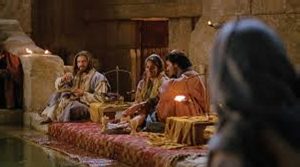John 8.12

There are some personalities that are said to transform a room when they enter it. There is something about them that is said to light up the room. Princess Diana was reportedly one of those. Despite her aristocratic, privileged, flawed and troubled life she became known as the Princess of the People. What made the difference was not just her status and beauty it was the way she communicated some of her inner self. She revealed her vulnerability through supporting mental health causes that she had experienced. She touched people that others might shy away from, famously those suffering with AIDs at a time of great prejudice. A patron of over 100 charities, above all Princess Diana had the capacity to relate to all types of people the world over. It was reported, people felt understood and cared for. In that sense she could light up a room.
Is that what is meant when Jesus said I am the light of the world? Not really, but there is a hint of it. When Jesus made that claim to the Jewish authorities and crowd at the Feast of Booths he was making a statement about his identity, his authority, his character and the impact he will have on people’s lives. His statement, “I am the light of the world” took place as part of the Festival of the Booths and therefore closely followed Jesus promise of the gift of the Holy Spirit when he said, ‘Whoever believes in me, … out of his heart will flow rivers of living water.’ John 7.38 Just as when Jesus used the libation ceremony to illustrate that pronouncement so here he linked himself to the lighting of candelabra in the Court of Women to signify the pillar of fire. That was God’s presence leading the Israelites at night, in the dark, through the wilderness. He was saying, I am the pillar of fire that is God, follow me. The significance would not have gone unnoticed by the people or the Jewish authorities and it enraged the Pharisees. John 8.13
John in the opening of his gospel made the connection between Jesus being the creator of life and it was Jesus’ life that was the light of men. John 1.4 Jesus’ identity was divine and his authority came from being the source of all life. But more than that, the metaphor of light relates to character. His way is the way to living life with purpose and goodness that is pleasing to and honours God. Following Jesus’ light keeps us on the path, wandering off the path leads to darkness and being lost.
These are simple messages. Their authenticity is rooted in who Jesus is. When in darkness we are attracted to the light. Can we make this our prayer for ourselves as we follow his path and our prayer for others who might still be stumbling in darkness.
Light Of The World – Lauren Daigle




